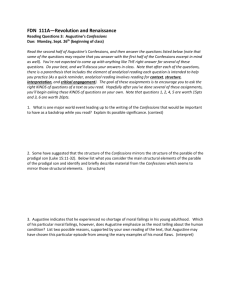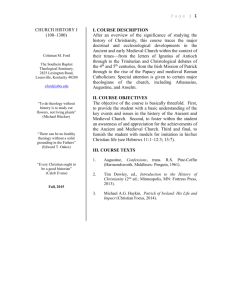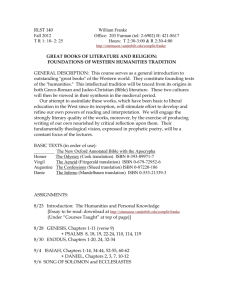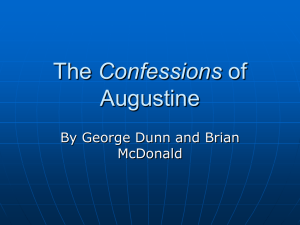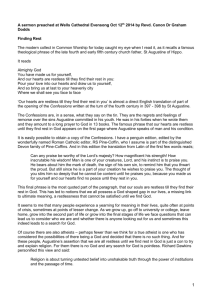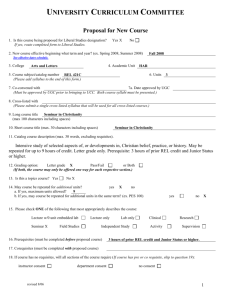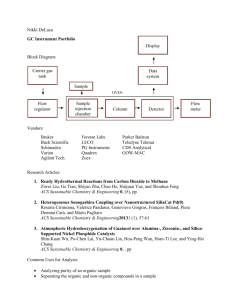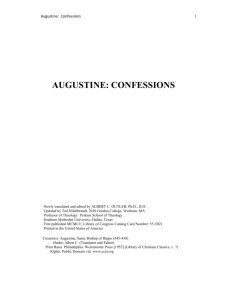Executive Summary - Villanova University
advertisement
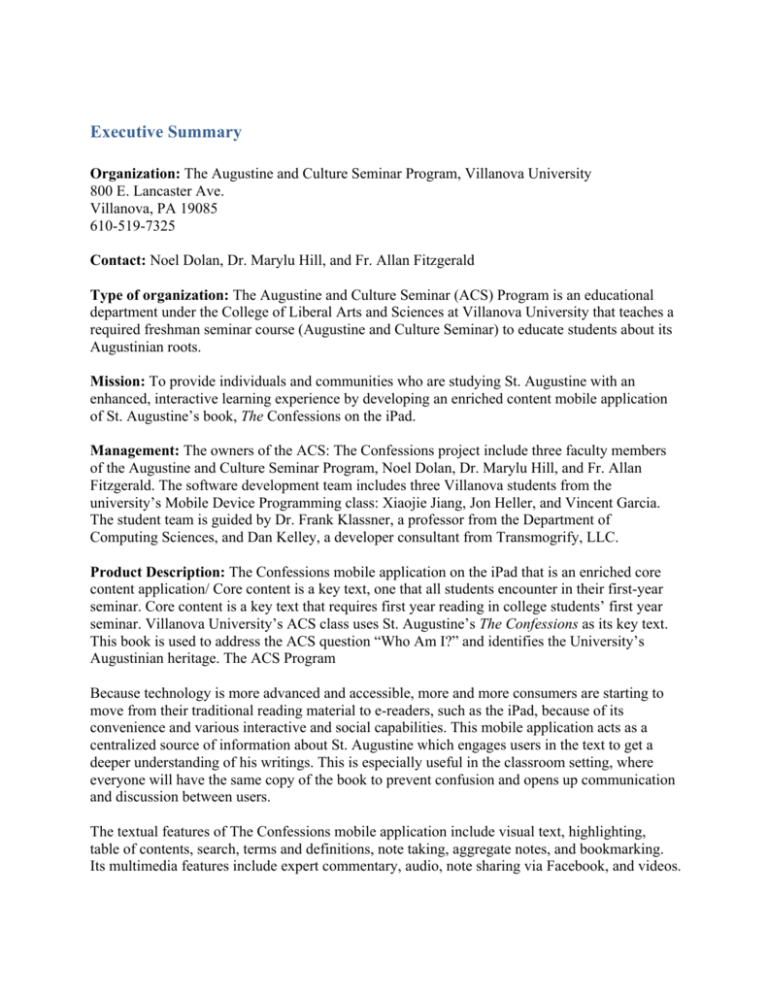
Executive Summary Organization: The Augustine and Culture Seminar Program, Villanova University 800 E. Lancaster Ave. Villanova, PA 19085 610-519-7325 Contact: Noel Dolan, Dr. Marylu Hill, and Fr. Allan Fitzgerald Type of organization: The Augustine and Culture Seminar (ACS) Program is an educational department under the College of Liberal Arts and Sciences at Villanova University that teaches a required freshman seminar course (Augustine and Culture Seminar) to educate students about its Augustinian roots. Mission: To provide individuals and communities who are studying St. Augustine with an enhanced, interactive learning experience by developing an enriched content mobile application of St. Augustine’s book, The Confessions on the iPad. Management: The owners of the ACS: The Confessions project include three faculty members of the Augustine and Culture Seminar Program, Noel Dolan, Dr. Marylu Hill, and Fr. Allan Fitzgerald. The software development team includes three Villanova students from the university’s Mobile Device Programming class: Xiaojie Jiang, Jon Heller, and Vincent Garcia. The student team is guided by Dr. Frank Klassner, a professor from the Department of Computing Sciences, and Dan Kelley, a developer consultant from Transmogrify, LLC. Product Description: The Confessions mobile application on the iPad that is an enriched core content application/ Core content is a key text, one that all students encounter in their first-year seminar. Core content is a key text that requires first year reading in college students’ first year seminar. Villanova University’s ACS class uses St. Augustine’s The Confessions as its key text. This book is used to address the ACS question “Who Am I?” and identifies the University’s Augustinian heritage. The ACS Program Because technology is more advanced and accessible, more and more consumers are starting to move from their traditional reading material to e-readers, such as the iPad, because of its convenience and various interactive and social capabilities. This mobile application acts as a centralized source of information about St. Augustine which engages users in the text to get a deeper understanding of his writings. This is especially useful in the classroom setting, where everyone will have the same copy of the book to prevent confusion and opens up communication and discussion between users. The textual features of The Confessions mobile application include visual text, highlighting, table of contents, search, terms and definitions, note taking, aggregate notes, and bookmarking. Its multimedia features include expert commentary, audio, note sharing via Facebook, and videos. Marketing: The market consists of all individuals and groups who read The Confessions or are interested in St. Augustine and his life. Within this market, there are numerous upward trends that display the rising usage and interest in mobile reading. Specifically, context-enriched services, content-enriched content, e-books, shift of print to digital use in schools, media tablets, and social media used in schools. The ACS Program targets a primary and secondary market. The primary target market includes university students and faculty. Specifically within Villanova University, first year students in the required ACS class would all be using the application. Approximately 1600 Villanova freshmen students and 35 faculty and staff would be using the application. There are also 244 Catholic universities in the United States, as well as hundreds of other Non-Catholic universities that may be interested in using The Confessions mobile application. The secondary market includes friars, congregants, researchers, parents and alumni, and public/general readers. Researchers would include the religious Augustinian communities and lay people. There are about 4.3 million Augustinians. One of the biggest religious orders amongst these Augustinian communities is the Order of St. Augustine. US and Canada has 402 members, South America has 814, Europe has 1107, Africa has 145, Australia is 37m and Asia has 180. Competition: There are several direct and indirect competitors involved with our business. Directly on the mobile side, there are both semi-interactive (does not have social media features) and interactive devices and applications. iBooks is the standard application on Apple devices for mobile books. It’s features are semi-interactive where one can define words through the web, highlight, and take some notes. Additional Semi-interactive devices include the Kindle (Amazon) and Nook (Barnes & Noble). Kindle’s features are audio, bookmarks and notes, and a dictionary. Interactive devices include the Vook which has text, video, links to the internet, and social media. Some others include Inkling, and Touch Press. The indirect competitors come from traditional forms of books which are not interactive. Book stores that sell The Confessions book in paper and audio form as well as internet versions of the books are indirect competitors that could defer people away from using The Confessions app. Unlike competitors, The Confessions app is a centralized source of information that has various enriched capabilities that are not included on the other devices and applications, which increases its ease of use. Some of these include a built in definition for important and unique terms in context with the text and a built in audio for the book. Also it will have built in commentaries and videos as an extra learning resource for the user. Development Plan: The implementation of The Confessions mobile application will occur through a cycle of two different phases. Phase 1 is the initial rollout of The Confessions project where the goal is to create a 0.99 version. During this phase, the student development team from the Mobile Device Programming class focuses on creating basic enriched core text and multimedia features. Phase 2 is where The Confessions project is turned into a student summer project. Here, hired student developer interns and research assistants will work together to further advance the development and test the application. As the academic school year begins again, the project will again be handed to student developers from the Mobile Device Programming class. This cycle will continue until the mobile application is ready to be first released to the primary target market, Villanova freshman students and ACS faculty.
